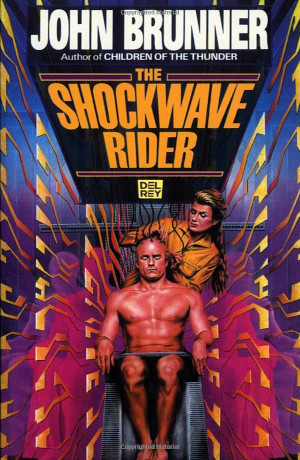Science fiction authors set stories in the future, but they don’t necessarily try to predict the future, and so it’s a little odd to talk about what they “got right.” Getting something right implies they were making a prediction rather than imagining a setting of a story.
However, sometimes SF authors do indeed try to predict the future. This seems to have been at least somewhat the case with John Brunner and his 1975 novel The Shockwave Rider because he cites futurist Alvin Toffler in his acknowledgement.
… The Shockwave Rider derives in large part from Alvin Toffler’s stimulating study Future Shock, and in consequence I’m much obliged to him.
In light of Brunner’s hat tip to Toffler, I think it’s fair to talk about what he got right, or possibly what Toffler got right. Here’s a paragraph from the dust jacket that seemed prescient.
Webbed in a continental data-net that year by year draws tighter as more and still more information is fed to it, most people are apathetic, frightened, resigned to what ultimately will be a total abolishment of individual privacy. A whole new reason has been invented for paranoia: it is beyond doubt — whoever your are! — that someone, somewhere, knows something about you that you wanted to keep a secret … and you stand no chance of learning what it is.

